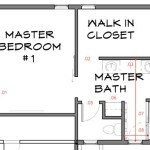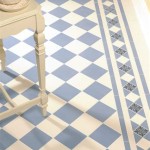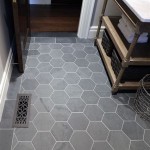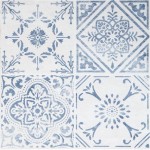Room Divider Floor To Ceiling
Room dividers are used in order to divide or section off a room. They can create more usable space and can be used for a variety of purposes. They can be used to separate different functional areas of a room and can also be used to create a more private space. They come in a variety of materials, styles, and sizes, so they can be customized to fit any room.
Floor-to-ceiling room dividers are an excellent way to section off a space without sacrificing light or air flow. They are available in a variety of materials and finishes, so you can choose one that complements the style of your room and floor plan. They are also easy to install and remove, making them a flexible option for temporary or permanent room division.
Benefits of Floor-to-Ceiling Room Dividers
There are many benefits to using a floor-to-ceiling room divider, including:
1. Privacy
Floor-to-ceiling room dividers are an excellent way to create a more private space. They can be used to section off a bedroom, office, or other area where you need some privacy. They can also be used to create a more private space in a shared room, such as a dormitory or apartment.
2. Space Division
Floor-to-ceiling room dividers are a great way to divide a large room into smaller, more manageable spaces. They can be used to create a separate living room, dining room, or office in a large room. They can also be used to create a more private space for guests or children.
3. Noise Reduction
Floor-to-ceiling room dividers can help to reduce noise levels in a room. They can be used to block out noise from a busy street or from a neighboring room. They can also be used to create a more peaceful environment in a noisy room.
4. Light Control
Floor-to-ceiling room dividers can be used to control the amount of light that enters a room. They can be used to block out direct sunlight or to create a more diffuse light. They can also be used to create a more dramatic or intimate atmosphere in a room.
5. Aesthetics
Floor-to-ceiling room dividers can add a touch of style and sophistication to a room. They are available in a variety of materials and finishes, so you can choose one that complements the style of your room and floor plan. They can also be used to create a focal point in a room.
Types of Floor-to-Ceiling Room Dividers
There are many different types of floor-to-ceiling room dividers available, including:
1. Folding Room Dividers
Folding room dividers are a great option for temporary room division. They are easy to set up and take down, and they can be folded away when not in use. They are available in a variety of materials, including fabric, wood, and metal.
2. Sliding Room Dividers
Sliding room dividers are another great option for temporary room division. They are similar to folding room dividers, but instead of folding, they slide open and closed. This makes them a good option for spaces where you need to be able to quickly and easily divide the room.
3. Shoji Screens
Shoji screens are traditional Japanese room dividers that are made of paper or fabric stretched over a frame. They are often used in homes and businesses to create a more private or intimate space. They come in a variety of styles and designs, and can be customized to fit any room.
4. Bookcases
Bookcases can be used as a room divider to create a more functional and stylish space. They can be used to store books, magazines, and other items, and they can also be used to display plants, artwork, or other decorative items.
5. Curtains
Curtains can be used as a room divider to create a more private or intimate space. They can be drawn closed to block out light or to create a more cozy atmosphere. They are available in a variety of fabrics and styles, so they can be customized to fit any room.
How to Choose the Right Floor-to-Ceiling Room Divider
When choosing a floor-to-ceiling room divider, there are a few things to consider:
1. Purpose
What is the purpose of the room divider? Is it for privacy, space division, noise reduction, or light control? Once you know the purpose, you can start to narrow down your options.
2. Style
The style of the room divider should complement the style of your room and floor plan. If you have a traditional room, you may want to choose a room divider that is made of wood or fabric. If you have a more modern room, you may want to choose a room divider that is made of metal or glass.
3. Material
The material of the room divider should be durable and easy to clean. If you have children or pets, you may want to choose a room divider that is made of a durable material, such as vinyl or metal. If you are looking for a more lightweight option, you may want to choose a room divider that is made of fabric or paper.
4. Size
The size of the room divider should be appropriate for the size of the room. If you have a large room, you will need a larger room divider. If you have a small room, you will need a smaller room divider.
5. Price
The price of the room divider should be within your budget. There are a variety of room dividers available at different price points, so you should be able to find one that fits your needs and budget.

Wooden Wall Partition Room Divider Floor To Ceiling Slats Ebay

Floor To Ceiling Movable Room Divider Dancing Foldable Partition Wall System

10 Creative Floor To Ceiling Room Divider Ideas

Wooden Wall Partition Room Divider Floor To Ceiling Slats

Soundproof Room Dividers Acoustic Folding Partitions Netwell

Floor To Ceiling Wood Slat Dividers With Rotational Base 3

These Ridiculously Stylish Room Divider Partitions Will Help You Elevate Any Space

Other Custom Panels And Room Dividers Craftivaart

Shop Wood Slat Room Dividers Ships In 3 Business Days
Building A Mounted Room Divider Diy Home Improvement Forum








